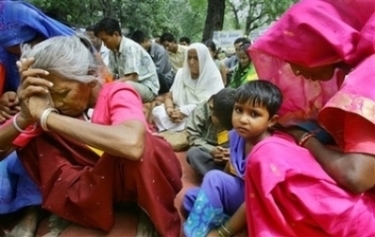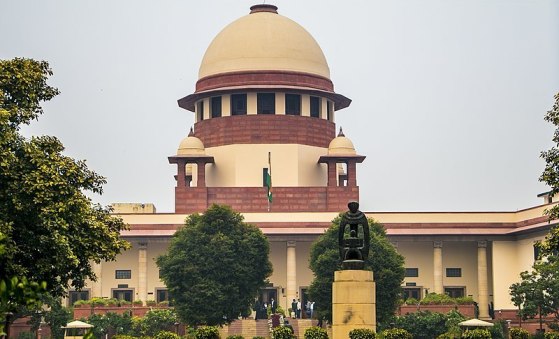
As part of Hindu nationalists’ ongoing campaign to stop India’s tribal, or indigenous, people from converting to Christianity, a rightwing Hindu leader has demanded that all churches be closed down in a district in the central state of Madhya Pradesh.
Azad Prem Singh, a leader of the Hindu nationalist group the Vishwa Hindu Parishad or the World Hindu Council, handed over a memorandum to the administrative head of Jhabua district, demanding that all churches be banned in tribal areas, the U.S.-based persecution watchdog International Christian Concern reported Sunday.
Singh claimed that Christians were fraudulently mass-converting people to Christianity. “In the past 70 years, Christian missionaries have converted gullible indigenous people to Christianity and built churches specifically on protected tribal land,” Singh claimed. “All the illegally built churches should be shut down immediately and action should be taken against all priests and pastors involved in the process.”
In the Jan. 11 memorandum, Singh gave the local government 30 days to meet his demands, threatening to use violence to stop church activities.
In March 2004, anti-Christian violence broke out in Jhabua district, where tribals constitute 85% of the population.
Last November, a group called Janajati Suraksha Manch (Tribal Security Forum) in eastern Odisha state wrote to India Prime Minister Narendra Modi and President Ram Nath Kovind, urging them to exclude converted tribal people from availing reservations in educational institutions and government and public-sector jobs as well as other protections that the country’s constitution provides for.
“Maintain your religion, culture and traditions,” Megha Oraon, an official of Janajati Suraksha Manch, was quoted as saying at the time. “Those who are taking benefits reserved for scheduled tribes from other religions should be stopped and a law should be enacted to stop people taking advantage.”
According to Census 2011, more than 104 million people — or 8.6% of India’s population — are from the various tribes that are listed in the Indian constitution for affirmative action, which was provided for on the basis of their seclusion at the time of India’s independence from British rule in 1947.
Most tribals do not identify as Hindus; they have diverse religious practices, and many worship nature. However, the government’s Census deems them to be Hindu.
An estimated 70% of India’s 32 million Christians are Dalit (formerly untouchable, as per India’s caste system), and about 20% are tribal. However, Christian persecution is prevalent mostly in districts where tribal people are in the majority, as most Dalits do not support the Hindu nationalist Bharatiya Janata Party while the tribals are seen as undecided voters.
John Prabhudoss, chairman of the Federation of Indian American Christian Organizations of North America, previously told The Christian Post that the victory of the BJP in the national election in 2014 and its reelection in 2019 “brought about a sense of confidence among the Hindu radical party cadre that now they can attack Christians and other religious minorities with impunity and they do not have to worry about the law enforcement.”
India is ranked No. 10 on Open Doors’ 2020 World Watch List of the countries where it's most difficult to be a Christian. Open Doors notes that converts to Christianity from a Hindu background are “especially vulnerable to persecution” and are constantly under pressure to return to Hinduism.
Courtesy of The Christian Post




